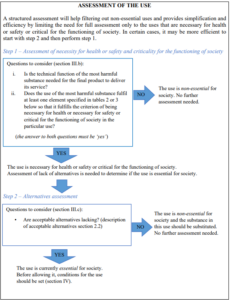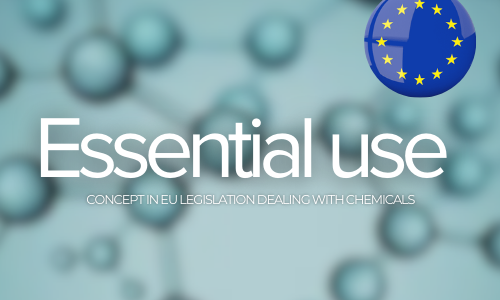The essential use concept in EU legislation addressing chemicals is a framework designed to determine when the use of certain substances is necessary for societal needs. It aims to balance health, safety, and environmental concerns with societal demands. This concept entails identifying uses that are critical for health, safety, or societal functioning, while also assessing the availability of alternatives.
Through structured assessments, non-essential uses can be filtered out, simplifying regulatory processes and promoting the transition to safer alternatives. The implementation of this concept requires careful consideration of specific criteria and procedures within individual legislative frameworks to ensure its effectiveness and applicability across various sectors.
1. Use of a most harmful substance is necessary for health or safety for one or more of the following elements:
– Addressing sickness and comparable health issues;
– Sustaining basic conditions for human or animal life and health;
– Managing health crises and emergencies;
– Ensuring personal safety;
– Ensuring public safety.
2. Use of a most harmful substance is critical for the functioning of society for one or more of the following elements:
– Providing resources or services that must remain in service for society to function;
– Providing resources such as infrastructure and equipment to ensuredefence and security to society in the face of conventional, nonconventional and hybrid threats;
– Managing societal risks and impacts from natural crises and disasters;
– Protecting and restoring the natural environment;
– Performing scientific research and development;
– Protecting cultural heritage.

Ekotox Page ESSENTIAL USE:https://ekotox.eu/the-essential-use-concept-in-eu-legislation-dealing-with-chemicals/
ECHA: Guiding criteria and principles for the essential use concept in EU legislation dealing with chemicals
REACH Conference 2024: REACH Conference 2024 – Ekotox Training



